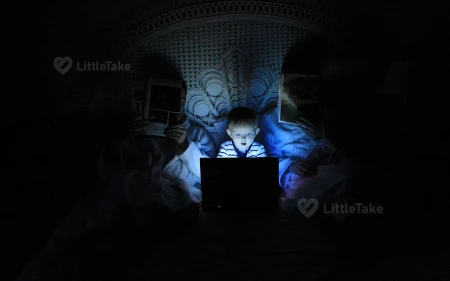
Digital Life Skills for Kids
With technology playing an increasingly central role in our daily lives, it's vital for kids to develop digital life skills that will help them navigate the online world safely and effectively. This article will outline key digital life skills and provide real-life examples to help your child become a responsible digital citizen.
1. Digital Etiquette
Teach your child the importance of treating others with kindness and respect online, just as they would in real life. This includes being mindful of their language and tone, avoiding sharing inappropriate content, and respecting others' privacy.
Real-Life Example: The Golden Rule
Encourage your child to follow the golden rule of digital etiquette: Treat others online as you would like to be treated. This simple principle can help guide their behavior and foster a positive online environment.
2. Online Safety
Equip your child with knowledge about online safety, including creating strong passwords, recognizing scams and phishing attempts, and understanding the importance of privacy settings on social media platforms.
3. Media Literacy
Help your child develop critical thinking skills to evaluate the reliability and credibility of information they encounter online. Teach them to fact-check, identify biased sources, and recognize clickbait and fake news.
Real-Life Example: Fact-Checking Exercise
Engage your child in a fact-checking exercise by having them research a current event or topic online. Encourage them to compare multiple sources and discuss their findings with you to develop their media literacy skills.
4. Digital Footprint Awareness
Explain the concept of a digital footprint and the long-term consequences of their online actions. Help your child understand that what they post online can impact their reputation, relationships, and future opportunities.
5. Time Management
Teach your child how to balance their online activities with other aspects of their life, such as school, extracurricular activities, and face-to-face social interactions. Encourage them to set limits on screen time and prioritize their well-being.
Real-Life Example: Family Screen Time Rules
Establish family screen time rules, such as no devices during meals or bedtime, to help your child develop healthy digital habits and learn effective time management skills.
6. Responsible Content Creation
Encourage your child to create and share positive, meaningful content online. This could include engaging in creative projects, expressing their interests, or participating in online communities that align with their passions.
Conclusion
Digital life skills are essential for kids to navigate the online world safely and responsibly. By teaching them digital etiquette, online safety, media literacy, digital footprint awareness, time management, and responsible content creation, you can empower your child to become a knowledgeable and respectful digital citizen.













